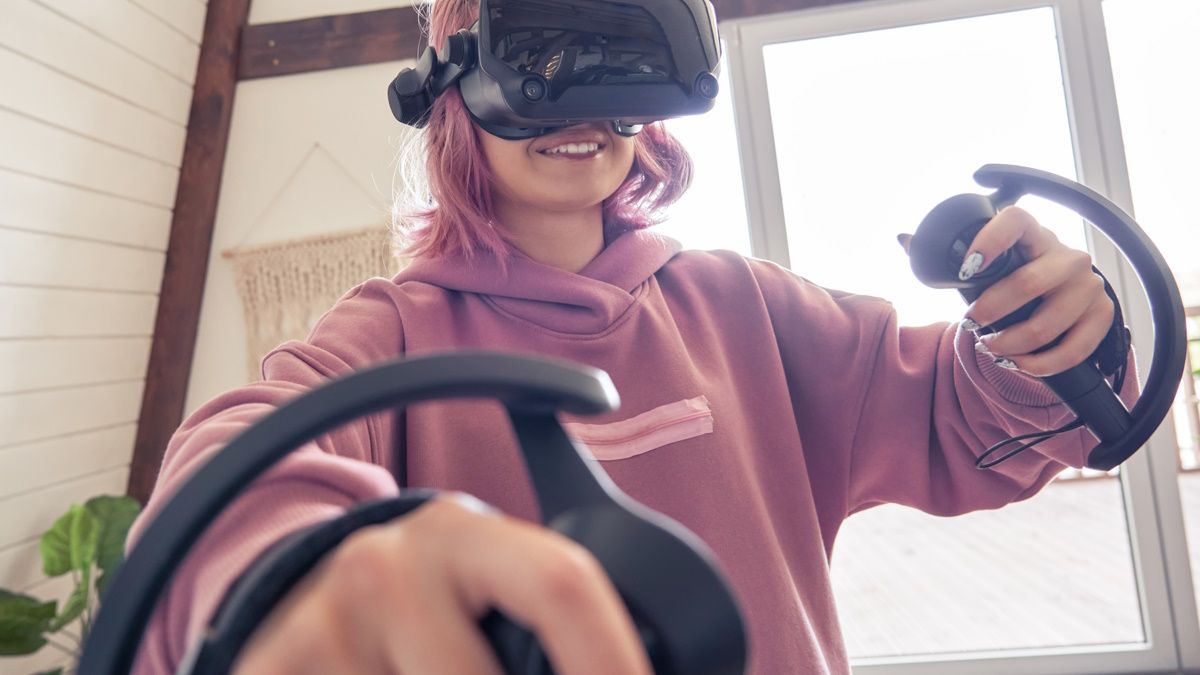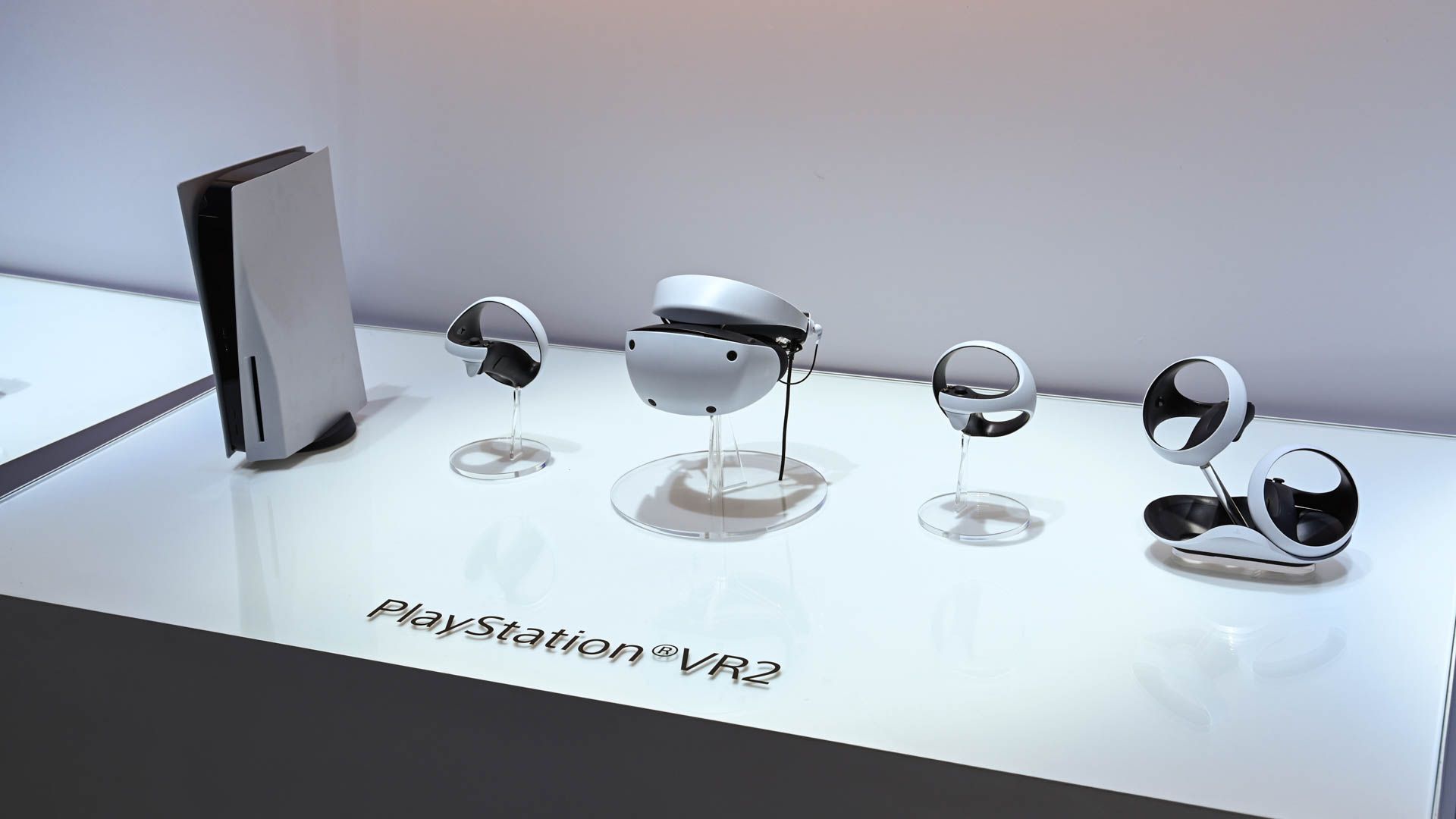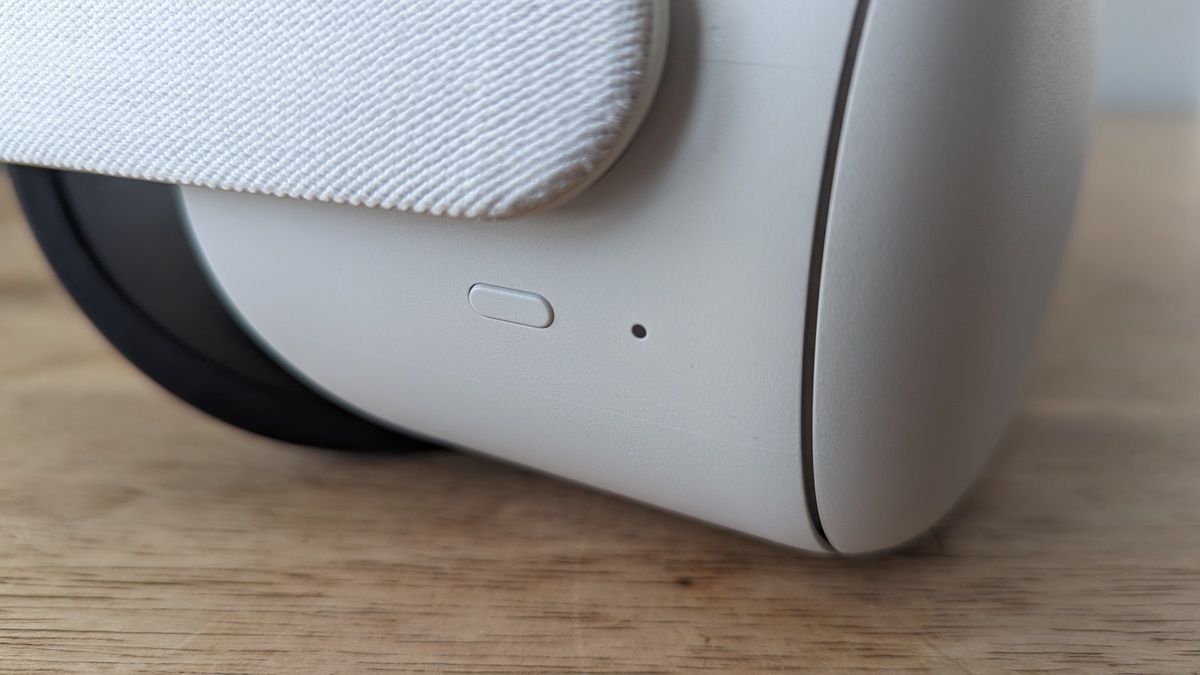Virtual reality prices are down, and the quality of games is up, so it’s a great time to jump in if you’ve been holding off on taking the plunge. While we aren’t quite in The Matrix yet, modern VR headsets are shockingly good.
UPDATE: 11/07/2023
We’ve updated our roundup with our latest VR headset picks. Take a look!
What to Look for in a VR Headset in 2023
The technical specifications for VR headsets can be confusing, but you only need to concentrate on a few key areas to narrow things down to the good ones.
First, is the headset a tethered or standalone unit? A tethered VR headset needs a device like a gaming PC or console to provide all the processing power for VR applications. So, you’ll need to make sure your PC has the proper components to run games and support the VR headset at the same time. A standalone VR headset contains all the necessary hardware to run its VR apps, taking some technical labor off the PC or console.
The positional motion tracking method of a VR headset is an important consideration. The modern trend is towards inside-out tracking, where cameras on the headset scan your environment and then calculate your motion relative to those fixed reference points.
The alternative, which are external trackers, tend to be more precise, but inside-out trackers are more portable, elegant, and cut down on wires.
Next, high-resolution display panels inside the headset help the image by making the actual pictures smaller. This reduces the chance that you’ll see the pixel grid while using the headset and makes the experience more immersive. The refresh rate also plays into the immersion factor, and 90Hz is a good working minimum for a headset.
Finally, there’s one aspect you may not have considered regarding VR headsets: your interpupillary distance (IPD). Many VR headsets (including our top overall pick) have adjustable lens spacing. Our top overall pick should work well for 95% of people.
If you fall at either extreme end of the IPD range, however, you may get a blurry image. You can check your IPD with an app or, for the most precise measurement, get it measured by an optometrist.
This is only just scratching the surface of what you need to consider when buying a VR headset. But, don’t worry; we’ve done all the research and picked out the best VR headsets for you below.
|
How Did We Research |
||
|
Models Evaluated |
Hours Researched |
Reviews Analyzed |
|
17 |
15 |
56 |
How-To Geek’s product recommendations come from the same team of experts that have helped people fix their gadgets over one billion times. We only recommend the best products based on our research and expertise. We never accept payment to endorse or review a product. Read More »
|
Pros |
Cons |
|---|---|
|
✓ Mixed reality for the masses |
✗ Could be more comfortable, may require purchasing comfort mods |
|
✓ Versatile |
✗ Significant price increase for the top mode vs Quest 2 |
|
✓ Strong developer support |
The Meta Quest 3 is everything the Quest 2 was, but better (and more expensive). It’s smaller, lighter, has twice the graphical power, and now comes with an advanced set of full-color external cameras. This means the Quest 3 can present a detailed representation of the world around you and integrate virtual elements with it. As mentioned in our review of the Meta Quest 3, this helps the headset to appeal to a larger audience:
In hindsight, the Quest 2 was a headset made exclusively for enthusiasts. It was a modern VR headset for people ahead of the curve. Now, in the dawn of the Meta Quest 3, it seems like it could be one that expands the company’s reach and brings more people into the world of virtual and mixed realities.
That makes the Quest 3 more than an entertainment device—it’s a potential work and creativity tool. The Quest 3 is also fully backward compatible with Quest 1 and Quest 2 apps, and we expect that, just as with the Quest 2, developers will soon be taking advantage of the better hardware and updating their software. However, that brings us to the most important consideration for the Quest 3: Should existing Quest owners should this new headset?
If you have a Meta Quest 1, the Quest 3 is an easy recommendation, since the first Quest headset is no longer supported by Meta. You can still use the Quest 1 to play the games you’ve paid for and those still in the Meta Quest store, but new games are unlikely to support it. If you currently own a Quest 2, the increased specs across the board for the third iteration make it worth the upgrade, but take note that it will still take a little while for the software to catch up to these new specs.
If you don’t have any sort of VR headset at all, the Quest 3 is a great recommendation for standalone and PC VR, however it is significantly more expensive than the Quest 2 thanks to all the mixed reality hardware.
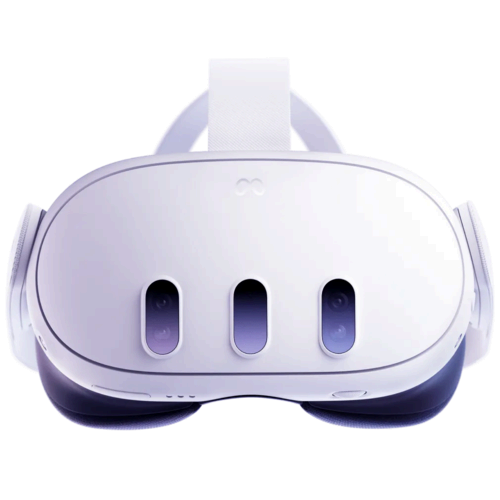

Meta Quest 3
Best VR Headset Overall
The Meta Quest 3 improves on the Meta Quest 2 in every way, while adding brand-new mixed reality capabilities thanks to advanced full color external cameras.
|
Pros |
Cons |
|---|---|
|
✓ Base model is the rock-bottom price for premium mixed reality |
✗ Quest 3 games promise to be larger, making 128GB a more dubious choice |
|
✓ Access to cheap PC VR games |
Buying the 128GB version of the Meta Quest 3 will save you around $150 over the 256GB model, making it a great budget option. This is cutting your storage in half, but if you’re never going to have more than a handful of games installed at any one time, this might be a sacrifice worth making.
Since the Meta Quest 2 will still be sold alongside the Quest 3, it’s tempting to declare the older model as best budget VR headset. How but given how large the performance and quality leap is from Quest 2 to 3, we can’t in good conscience claim it’s the best budget headset you can buy.
That makes the 128GB Quest 3 the cheapest VR headset we’d recommend anyone buy for all-purpose usage, which covers standalone VR, PC VR, and mixed reality. It’s an unbeatable deal, considering everything this headset can do.
That said, forgoing the 256GB model might end up being troublesome, as we suspect that games that take advantage of the Quest 3’s better hardware will also increase in size. I have a moderately-sized Quest library, and my 256GB Quest 2 is generally 80% full. So, prepare for some juggling if you like the most demanding and graphically intense Quest 3 games.
Likewise, if you’re only looking for a PC VR headset for as little money as possible, it’s worth going for the Meta Quest 2, since it’ll work just fine as a PC VR headset. They’re still cheaper than tethered PC VR headsets, even if you don’t care about their standalone features. That said, the entry-level Quest 3 is the most affordable entry into the world of true mixed reality and the only budget choice for those who want to try a little bit of everything.


Meta Quest 3
Best Budget VR Headset
The Meta Quest 3 improves on the Meta Quest 2 in every way, while adding brand-new mixed reality capabilities thanks to advanced full color external cameras.
Best VR Headset for PC: Valve Index
|
Pros |
Cons |
|---|---|
|
✓ Cutting-edge headset |
✗ How much?! |
|
✓ The best SteamVR experience money can buy |
✗ No inside-out tracking |
|
✓ Modular buying choices |
While there are headsets, such as the HTC Vive Cosmos Elite, that outdo the Valve Index in some specific ways, the Index is the best PC headset as a whole.
Valve’s VR headset is quite expensive, but that’s countered a little thanks to Valve’s modular approach. You can buy any component of the kit as you wish, whenever you want.
So, for example, if you already own the older Index controllers, you can upgrade to the new headset but keep the previous motion controllers to save money. That’s great news for owners of previous Valve headsets, but the total price for the kit newcomers need to buy is steep.
The other major point in favor of the Index is that you’re not going to find something that works better with SteamVR. This is the hardware that SteamVR is designed for, after all. Half-Life Alyx, quite possibly the best VR game, was designed for the Index. You can play it just fine on other SteamVR-compatible headsets, but the Index is the definitive experience for this title and several others.
It’s also important to note that the Valve Index is a positional tracking virtual reality headset. While the overall trend in VR seems to be heading towards inside-out tracking as the standard, the Index relies on base stations to provide this accurate room-scale tracking.
Positional tracking is better and more accurate than inside-out tracking, but it has some downsides. You need to set up a permanent VR space using the base stations and have that set up again whenever you want to move somewhere new.
Compared to the PC VR experience of the Meta Quest 2, where you can take your computer anywhere, plug in the Quest 2 and be in business in seconds, you can see why inside-out tracking may be more popular, even if less accurate.
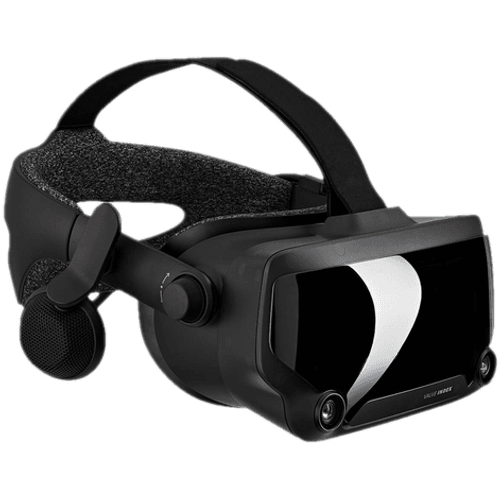

Valve Index
Best VR Headset for PC
The Valve Index is the SteamVR gold standard and offers a VR experience that’s nearly as good as it gets on PC.
|
Pros |
Cons |
|---|---|
|
✓ Comfortable halo-style headband |
✗ Costs as much as the PS5 console itself |
|
✓ Impressive 4K display resolution |
✗ Not backward compatible with PS4 |
|
✓ Eye tracking and haptic feedback in the headset |
|
|
✓ Much improved Sense controllers |
|
|
✓ No need for an external camera |
It seems like an age since the launch of Sony’s PS VR headset for PS4 in 2016. And although the original PlayStation VR gaming headset performed brilliantly, it was time for the new console to get an upgraded VR experience.
In many ways, Sony’s new PS VR2 headset sticks to its predecessor’s tried and tested formula. It uses a halo-style headband and lightweight visor designed for maximum comfort over long play sessions. A rubberized light shield, which can be adjusted to allow glasses to be worn, blocks out environmental light for better gaming immersion.
The dual OLED screens, producing a 4K display resolution, are a major upgrade from the PS VR, as is the eye tracking, 3D audio, and headset feedback. Four cameras mounted on the headset track your movements, so there’s no need for an external PlayStation camera to be set up in front of you.
Another welcome improvement comes in the form of the two Sense controllers that come bundled with the PS VR2 headset. They allow much greater control for a wider variety of VR games and look pretty cool too.
The one downside is that it isn’t backwardly compatible, so you can’t use it to improve the VR experience on your PS4. But despite that, and even though you don’t have many other options to enjoy your AAA PS5 virtual reality games, the PS VR2 is a worthy successor to the PlayStation VR headset.
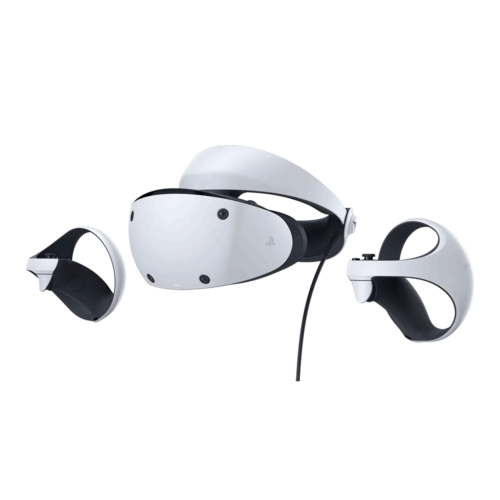

PlayStation VR2
Best VR Headset for Console Gaming
The powerful PS5 now has a VR headset that does justice to the high-resolution graphics of its best virtual reality games. The PS VR2 is a worthy upgrade to the tried and true PS VR for the latest console generation.
|
Pros |
Cons |
|---|---|
|
✓ Powerful, VR-specific onboard SoC |
✗ Can be uncomfortable without after-market mods |
|
✓ A strong library of Quest games, including exclusive titles |
|
|
✓ Standalone VR features such as Guardian are peerless |
|
|
✓ Offers direct hand-tracking |
Yes, we’re back to the Meta Quest 2, but this is the category the headset was designed for. It’s not just that the Quest 2 offers solid standalone hardware; it’s also that it has a robust app store. It’s best to think of the Quest as the VR equivalent of a gaming console insofar as it has dedicated versions of VR applications created for it.
The Quest 2 is a significant step up compared to the original Quest in several ways, and Quest 2 exclusive titles that rely on its increased horsepower are on the horizon. Quest 2’s hand tracking system and excellent perimeter Guardian technology make it one of the best VR devices you can own today.
While there have been other standalone VR headsets in recent years, they’ve more or less fallen by the wayside because none have garnered the long-term support and backing the likes of Meta brings to the table. There’s no denying what the social media giant’s backing has done for this line of VR headsets.
The Quest 2 is the best standalone VR headset on the market, and now you don’t even need a Facebook account to use it.
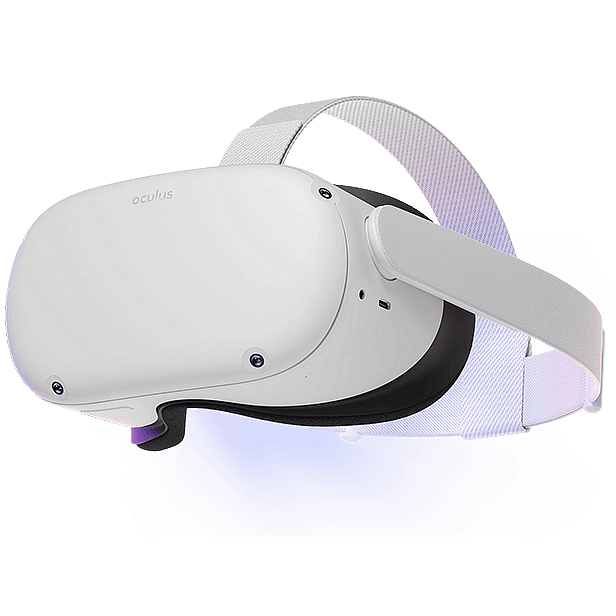

Meta Quest 2
Best Standalone VR Headset
Even with the release of the Meta Quest 3, the Meta Quest 2 is a worthwhile VR headset purchase.
FAQ
What Is Virtual Reality?
That’s a broad question, but the short answer is that Virtual Reality is any technology designed to replace our perception of the real world with artificial inputs that trick us into thinking we’re somewhere we’re not.
What is Mixed Reality?
Mixed reality mixes elements from the real world with elements from the virtual world. For example, you might see painting on a wall that’s bare in real life. Mixed Reality headsets use cameras or special transparent visor and projection systems, along with sophisticated spatial sensors and processors, to make the virtual and real-world look seamless to you.
Do you need a console or PC to work VR headsets?
In most cases, you’ll need to connect a VR headset to a PC, or to a console in the case of the PSVR and PSVR2—specifically a PlayStation 4 or 5. The exception is the Meta Quest series of headsets, and a few other less mainstream examples, where the headset is a self-contained system with its own onboard computer. The Quest headsets are notable for also working as PC-connected headsets, taking advantage of the higher performance possible with PC hardware.
Will I get motion sick using VR?
Even with the latest technology, motion sickness remains a problem, but it’s much more rare than with earlier VR technologies. Some individuals are more prone to motion sickness, and certain games and experiences are more likely to induce it, so there are lots of variables. Most modern VR games offer different comfort level settings, which can help those prone to motion sickness avoid it.
Do I need a Facebook account to use the Meta headsets?
Virtual reality prices are down, and the quality of games is up, so it’s a great time to jump in if you’ve been holding off on taking the plunge. While we aren’t quite in The Matrix yet, modern VR headsets are shockingly good.
Is the PSVR 2 backward compatible with the PSVR library?
No, unless the title’s developer updates their software to work with PSVR 2, you’ll need an original PSVR which can be used with the PS5 using a special adapter available from Sony.
